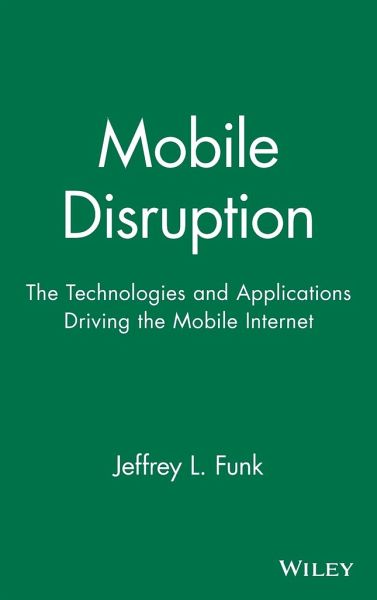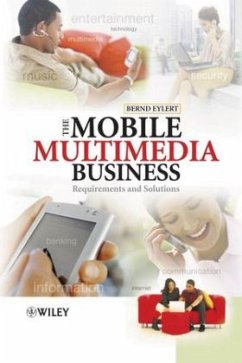
Mobile Disruption
The Technologies and Applications That Are Driving the Mobile Internet
Versandkostenfrei!
Versandfertig in über 4 Wochen
109,99 €
inkl. MwSt.

PAYBACK Punkte
55 °P sammeln!
ManyJapanese, U.S., and European companies have misunderstood and continue to misunderstand the implications of the mobile Internet because they remain focused on their current lead customers when they should be searching for a new set of lead customers. Mobile Disruption: The Technologies and Applications that Are Driving the Mobile Internet describes the business models, user needs, key technologies, and the expected evolution of technologies so that firms can create strategies that are profitable in both the long- and short-term.
_ A disruptive technology is a technology or innovation that results in worse product performance different from the expected or predicted performance; an example is that the Internet accessible mobile phone was thought to be a portable substitute for the PC-the actual applications of mobile phones are far different from this
_ Describes business models, user needs, and key technologies to create long-term strategies that are profitable in both the long- and short-term
_ Describes business models, user needs, and key technologies to create long-term strategies that are profitable in both the long- and short-term














